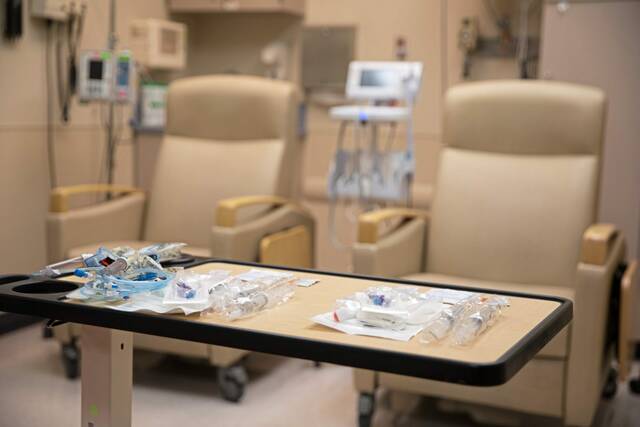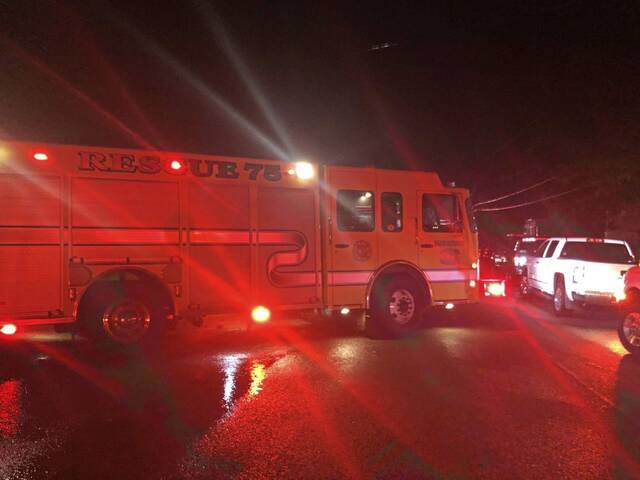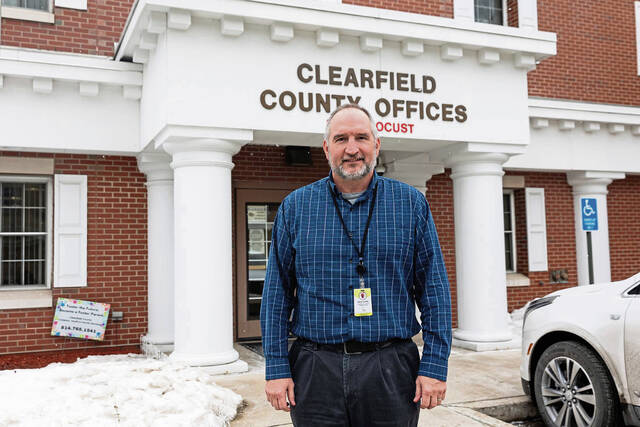Real-time studies involving UPMC’s covid-19 patients have shown that monoclonal antibody treatments “significantly decrease” hospitalization and death, researchers said Wednesday.
Experts said they are studying whether such treatments are effective against more contagious variants, like the fast-spreading delta variant.
The study results were published in medRxiv, a preprint journal for studies awaiting peer review. Through the duration of the study, UPMC admitted 26 covid patients each day on average, with a seven-day moving average of 107 patients. Monoclonal antibody treatment led to 5% lower odds of death each month, the study authors concluded.
Getting to that conclusion meant veering away from usual long-game clinical trials and working with data from a study-through-doing technique.
“At the very beginning of this pandemic, UPMC saw that the old way of doing academic medicine wasn’t working,” said Dr. Derek Angus, UPMC’s chief innovation officer and executive vice president. “And by that, I mean a slow, traditional clinical trial – you give half the participants a placebo and plug along until the results are published, often years later, in peer-reviewed academic journals.”
With the swift and severe spread of covid-19, that long, slow process was not in the best interest of saving lives.
“Patients with covid were desperate for any possible therapy,” Angus said, “and their doctors needed immediate answers.”
Before UPMC launched the program, “only a small percentage” of patients eligible for monoclonal antibody treatment were taking advantage, Erin McCreary, a UPMC infectious disease pharmacist, said in a statement.
From March through June, UPMC randomly gave either Eli Lilly or Regeneron’s monoclonal antibody treatment to 1,935 covid-19 patents. Initial data, which came before delta was the predominant strain in the country, showed both treatments “performed well in keeping patients with covid-19 alive and out of the hospital,” researchers said. With both treatments, the researchers said very few serious complications arose.
Since the start of the pandemic, UPMC hospitals have treated 5,700 covid patients with monoclonal antibodies, including 2,300 in the past month, Angus said. Data show that, with the treatment, 70% of patients who would have otherwise been hospitalized are avoiding inpatient treatment.
“We don’t want to put you in the ICU or even a regular hospital bed,” Angus said. “We will if we have to, but what we want to do is keep you out of the hospital altogether.”
The treatment is most effective when given early in the course of the virus, and UPMC – as with many treatment centers in other states – has certain criteria that must be met to receive the treatment. Patients must have tested positive for covid-19, have had symptoms for 10 days or less and either be at least 65 or at least 12 with an underlying condition.
Monoclonal antibody treatment has become a salve that hard-hit southern states are trying to use to amid skyrocketing covid cases driven by the delta variant and low vaccination rates.
A photo taken last month in Jacksonville, Fla., that was posted to Reddit showed people lying on the floor of a monoclonal antibody treatment site as they waited their turn.
“They were moaning and obviously in a lot of pain. They were miserable,” said Louie Lopez, who shot the photo, according to CBS Miami.
About half of Regeneron’s antibody treatments have gone to Florida, Texas, Mississippi and Alabama, according to a late August report from Kaiser Health News, the journalism arm of the non-partisan Kaiser Family Foundation. Florida Gov. Ron DeSantis has touted the treatments, which received emergency use authorization from the Food and Drug Administration late last year. The covid-19 vaccines were authorized through the same process, though the Pfizer vaccine in August received full FDA approval.
Headlines show antibody treatment centers popping up in Texas, Tennessee and Alabama, where, according to WSFA, there are 200 fewer ICU beds than ICU patients in the state.
Despite this experimental but effective treatment, medical experts say the focus should remain on prevention, particularly as more and more relatively young, unvaccinated people fall ill.
Over the past several weeks, there have been nearly 19 times more unvaccinated UPMC patients aged 50 and younger admitted to the hospital than vaccinated patients, said Dr. Rachel Sackrowitz, chief medical officer of UPMC’s ICU Service Center.
She said the risk of hospitalization is 29 times higher for unvaccinated people as it is for those who are vaccinated, and the average age of those admitted is 10 years younger than at the pandemic’s December peak.
“These are people who have few other health issues and would otherwise be looking at many health years ahead,” she said.







